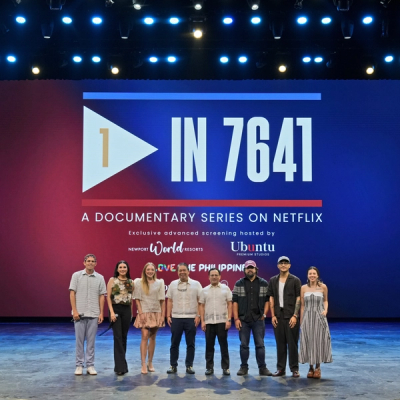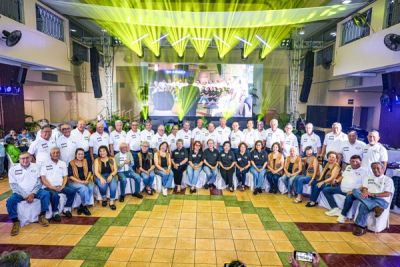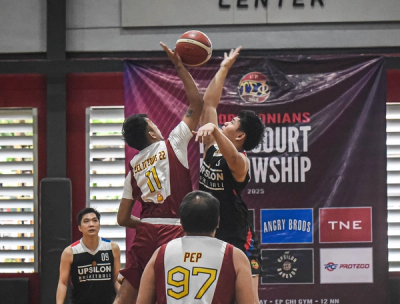Alumni
USAP: So That The Light Never Goes Out
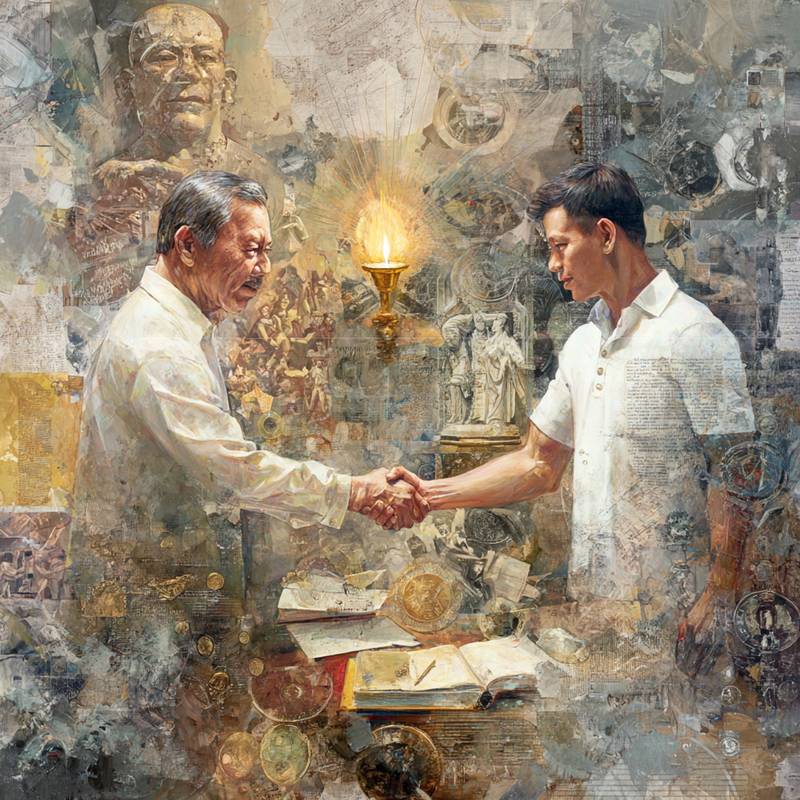
The story of Upsilon Sigma Phi is written in acts of brotherhood: of brods helping each other out. At our very core, this is who we are, who we have always been. When it comes to scholarships, you would hear stories of batches pooling funds to keep a brother in school, or even a lone alumnus picking up the tuition tab of another brod, all without asking for anything in return, except that the brods they are helping finish school.
On the other end of these acts of altruism, you must have also heard of alumni who have become successful professionals, who would not be who they are today were it not for the financial assistance they received at a crucial moment in their lives.
For over a century, this has been our unwritten creed: No Upsilonian gets left behind. Now, the USPAA, without meaning to replace these acts of altruism, goes one step further: it seeks to institutionalize scholarship support. It introduces the Upsilon Student Assistance Program, also known as USAP. The program is not a replacement for the culture of generosity that has always defined the fraternity, it is a continuation thereof, a way to make sure that help never depends on luck or timing. It codifies guidelines for something we have always done.
For the Board, it began with multiple requests for financial assistance. One brother needed help getting into graduate school abroad; another required funding for his thesis. And more requests were expected. However, the USPAA did not have funds set aside to help brothers in need, unlike in the case of medical assistance, which already had an institutionalized form of support through UMAP.
In such cases, support would have come from a member of the Board or an alumnus who would have covered the amount. It would still be a one-off though, so to speak. So, the Chairman of the Board, Eric Gene C. Pilapil ‘86, thought: Why not make this support a permanent program, something with structure, transparency, and the potential to carry on year after year, so we are not always starting from scratch every time a brother asks for help? And so USAP was born, a way for acts of generosity to echo beyond a single act and become part of a larger and long lasting mission.
The Board started the ball rolling by designating Trustee Tito Mora ‘78 to head the committee to develop the program’s guidelines. Trustee Philip Alpajora 2014 was brought in to manage evaluations. Rico Villareal ’86 and Bill Romero ‘76 would oversee finance. JJ Portugal ’80 was to manage legal requirements. Lucas Buenaflor 2023 was recruited to provide ground support.
The Board, however, was blown away by one more act of generosity from the brod who had been the backbone of UMAP. Bill Romero ’76 appeared before the Board via Zoom and told his story, how he had been the recipient of an act of kindness when he was a student, an act that had helped propel him to where he is now. As a way of paying that act forward, he pledged one million pesos to make sure that the program has a fund from which to start from, same way he did for UMAP.
USAP was envisioned as a flexible, accessible, and sustainable structure of support. It now offers four types of assistance: loans, grants, scholarships, and non-financial help.
As the Board discussed how help would be given, it became clear that there had to be some form of commitment in return. “There are no handouts here,” insisted President Gerry Sirios ’89. “The help, though given, must come with accountability.” Loans are interest-free if repaid within a year. Larger ones are payable over five years with minimal interest. No collateral is required.
Grants are modest but targeted. They cover transportation, food stipends, equipment, printing, and lodging. Only one grant per semester is allowed, and recipients are expected to submit short reports afterward.
And sometimes, the help isn’t even money. It might be a bed at the Leadership Center during exams, or a room at a fellow’s home while a brod figures things out.
Eligibility for USAP is simple. Applicants must be resident Upsilonians in good standing, enrolled in an accredited degree program. Open University degree programs may be considered on a case-by-case basis.
The application process is fast and straightforward. Students fill out an online form (https://tinyurl.com/ApplyUSAP2025), submit requirements including grades, a personal statement, and proof of financial need. The committee reviews applications within three working days. Larger grants and all loans are subject to USPAA Board approval. Once approved, the applicant receives a formal offer and must accept it within seven days.
All support, whether grant, loan, or scholarship, comes with expectations. Scholars must maintain good standing, submit reports, and, when able, help others who come after them.
For alumni who want to help, USAP takes away the guesswork. The committee vets every application. Need is assessed, potential is considered, before a decision is made. Donors can give to the general fund or direct their support toward something specific: a laptop fund, a printing allowance, even just a monthly meal stipend. Whatever it is, it is meant to be used well and accounted for.
This is how USAP is meant to work. And that’s where you come in. If you’re a student and in need, go and apply. If you’re an alumnus, give. Pick what you care about.
“What we’re building isn’t just a fund,” explains Tito Mora ’78. “We’re trying to live out the Credo of mutual aid and affection, so that the light, when it’s given to you, you carry it forward.”
About the Author
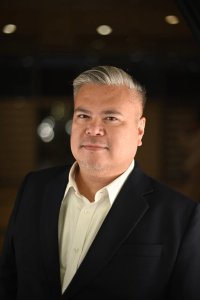
Javier P. Flores
A Juris Doctor from the University of the Philippines College of Law, he is a partner at the Flores & Ofrin Law Office, with expertise in corporation law, property, and litigation. Beyond the courtroom, Javi has made a name for himself as a publisher and editorial force. He is the co-owner of Milflores Publishing, a multi-awarded publishing house known for producing books that seek to elevate Filipino literature. He also founded League Magazine, a publication that spotlights the best governance practices of local leaders. Javi is also a two-time Master Photographer of the Camera Club of the Philippines. He was a former Associate Editor of the Philippine Collegian, the country’s oldest and longest-running student newspaper. Javi also served two terms on the Board of Editors for the Integrated Bar of the Philippines Law Journal.
